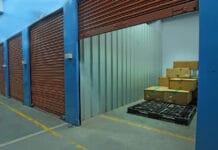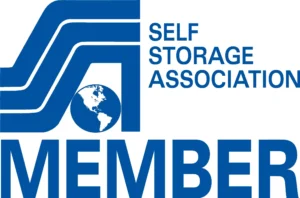Choosing the right storage unit is crucial for effective decluttering and organizing. Whether you’re in the middle of a renovation, moving, or just need extra space, a well-chosen storage unit can make all the difference. With the right unit, you can store items safely, from home storage needs to car storage.
This guidebook will help you navigate the process of selecting the best storage unit for your needs. We will discuss the importance of assessing your storage requirements, understanding different types of storage units, and considering location and security. We will also cover cost factors and special features like climate control and 24/7 access.
With the right information, you can decide and choose a storage unit that meets all your needs. This guidebook will ensure you find the perfect solution for decluttering and organizing your space, from storage boxes to larger items.
How to Choose a Storage Unit?
Choosing the right storage unit involves several important steps to ensure it meets your needs. Start by assessing what you need to store and estimating the required space. Understand the different types of storage units, such as climate-controlled, indoor, and outdoor units. Consider the location for convenience and safety.
Evaluate the size and dimensions to match your items, and check for essential security features like surveillance and gated access. Factor in costs and budget, compare prices, and check for hidden fees. Look for special amenities such as all time access and on-site management. Finally, review lease terms and read reviews to make an informed decision.
This guide will help you navigate each step to find the perfect storage unit. Let’s see few pointers that should be considered while selecting the storage unit –
Type of Storage Units
Choosing the right storage unit depends on your specific needs. Here are three common types of storage units to consider:
Climate-Controlled Units
Climate-controlled units maintain a stable temperature and humidity level. These units are ideal for sensitive items. They protect belongings from extreme temperatures and moisture. This includes electronics, documents, and antiques. Climate control prevents damage like warping, cracking, and mold growth. Though more expensive, the protection offered is worth it for valuable items.
Indoor vs. Outdoor Units
Indoor storage units are located within a building. These units offer extra protection from the elements. They are great for long-term storage of household items and documents. Accessing indoor units may require navigating through hallways or elevators. Outdoor storage units, on the other hand, are more accessible. They are typically found on the ground level with direct vehicle access. This makes loading and unloading easier. Outdoor units are suitable for large items, such as furniture and appliances. They may be less protected from temperature fluctuations and weather conditions compared to indoor units.
Drive-Up Access Units
Drive-up access units are the most convenient for frequent access. These units allow you to park your vehicle right next to the storage door. This makes it easy to load and unload heavy or bulky items. Drive-up units are usually outdoor units. They are perfect for storing items you need to access regularly, like business inventory or seasonal equipment. However, they might not offer the same level of protection as indoor or climate-controlled units.
Each type of storage unit offers unique benefits. Consider your specific needs and the type of items you plan to store. This will help you choose the best storage unit for your situation.
Assessing your Storage Needs
It is important to take inventory before you start storing items. Whether you prefer to write down your items in a notebook or use a digital tool like Evernote, keeping track of what needs to be stored in the ideal start point. This will help you organize your space efficiently and avoid wasting time trying to figure out what you have already accounted for.
Identify each item and measure it. Then update down the name of the item with its dimensions in your inventory list, like in a spreadsheet. Repeat this exercise for each room so you do not miss anything and have no surprise elements at the end. If you are not sure what something is, enrol help from family members or check out the pictures online.
Also think about if this is a one-time storage need or if you will need to store more items in the future. You might also want to think about whether you will need more than one type of storage. For example, if you need a facility to store your car/ bike while you’re away on a holiday and another unit to hold your goods which you use seasonally.
Size & Dimension of Storage Unit
Most storage units come in a variety of sizes to cater to the different storage needs of individuals renting them. The goal is to identify the best possible solution at an affordable price. This is where your inventory list comes in. The larger and bulkier the items, the bigger the space you will need to rent.
Self-Storage India provides you with tools like a Storage Calculator to help you accurately calculate the right size storage unit for you and see how it can be optimised. If you still have queries, our storage experts are available to answer your queries and further optimise your requirements. They have a detailed understanding of the various storage unit sizes and shapes available. This becomes even more critical when you must store larger items in the Self-Storage Unit.
Location of Self Storage Unit
The choice of the location of the self storage facility will depend on where you live and also how frequently you need to access the facility. Keep in mind that some larger facilities may be outside the city areas so depending on your storage need, do not rule out those farther out too.
What Type of Amenities Are Provided?
Whether you are storing your items for a short-term or long-term, your storage facility should come with the amenities that are relevant to your storage needs. Here are the ones that you should check for when speaking to a self-storage facility:
- Are the units available in a well- marked and easily accessible location?
- Does the facility have 24/7 surveillance and security?
- Can you access the facility at any time of the day?
- Is there ample parking around the facility for larger vehicles and trucks?
- Is there pest control to ensure your goods remain undamaged?
A well-maintained, clean, and tidy storage facility speaks volumes about how professional and customer-centric they are. So, when you get started with identifying the right storage partner, make sure you get answers to all these questions.
Final Words
Choosing the right storage unit involves careful consideration of your specific needs and preferences. Assess the items you need to store, and determine whether climate-controlled, indoor, or drive-up access units are most suitable. Consider the location for convenience and security, and ensure the unit size meets your requirements.
Evaluate the costs, including any hidden fees, and look for special features like all time access and on-site management. By understanding these factors and reviewing customer feedback, you can make an informed decision. This guidebook provides you with the knowledge needed to select the perfect storage unit, ensuring your belongings are safe, organized, and easily accessible. Make the right choice and enjoy the benefits of a well-chosen storage solution.
FAQs
A1. Consider factors like size, location, security, and cost.
A2. Estimate the space needed for your items and choose a unit accordingly.
A3. Climate-controlled units maintain stable temperature and humidity, ideal for sensitive items like electronics or antiques.
A4. Indoor units offer extra protection from the elements, while outdoor units are more accessible for loading and unloading.
A5. Drive-up access allows you to park your vehicle right next to the unit, making loading and unloading easier.
A6. Check for hidden fees like administrative costs or late payment charges.
A7. Some units offer 24/7 access, while others may have restricted hours.
A8. Look for units with surveillance cameras, gated access, and individual locks.
A9. Yes, consider climate-controlled units for items that need specific temperature and humidity levels.
A10. Visit the facility, review the lease agreement, and ask any questions to clarify terms and conditions.








